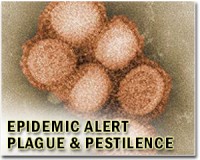| . |  |
. |
Geneva (AFP) Jan 17, 2011 World Health Organisation chief Margaret Chan warned Monday that the health community needs to tackle strong and "worrisome" public mistrust of vaccines, following signs of a tail-off in flu vaccination. Chan told the WHO's executive board that the take up of flu vaccine this season appeared to have suffered, while some countries in the northern hemisphere were seeing "severe" cases of H1N1 influenza in a younger age group. "In some cases, persuading the public to seek vaccination has become even more problematic than during the pandemic," the director general said at the beginning of the board's annual meeting. The H1N1 virus is now regarded as part of seasonal influenza and protection is included in standard seasonal flu vaccines. But during the 14-month pandemic alert sparked when swine flu appeared in 2009 and spread swiftly around the world, large stocks of specially-made vaccine went unused in Western nations as critics raised doubts about its value or potential side-effects. The UN health chief noted that "the problem of public mistrust extends well beyond influenza vaccines." "We may need to accept the fact that public perceptions about vaccine safety can be permanently changed by unfounded fears, to an extent that no amount of evidence can change the public's mind. "This is a worrisome new trend that needs to be addressed," she added. A study by the WHO in 2009 estimated that the rate of incomplete childhood vaccination stood at 44 percent. The "attitudes and knowledge of parents" were "the primary influences on whether a child is fully vaccinated" or not, the report on immunisation added. Such concerns have been raised about measles, following a resurgence of the potentially deadly childhood illness in Europe in recent years that has coincided with public scepticism about the value of routine child immunisation. In contrast, poor nations often struggle to find enough childhood vaccines and rely on mass immunisation campaigns by international agencies. Global efforts to eradicate polio were hit by a year long halt to immunisation in Nigeria in 2003, when radical Muslim clerics and some doctors raised unproven concerns about vaccine safety, allowing the disease to spread.
Share This Article With Planet Earth
Related Links Epidemics on Earth - Bird Flu, HIV/AIDS, Ebola
 WHO battles malaria treatment resistance
WHO battles malaria treatment resistanceGeneva, Switzerland (UPI) Jan 12, 2011 The World Health Organization began efforts to stop the spread of parasites resistant to the most potent treatment for malaria, the Geneva-based agency said. Undertaken by the U.N. health agency and the Roll Back Malaria Partnership, the plan outlines actions to contain and prevent resistance to artemisinins, the critical component of artemisinin-based combination therapies, the most po ... read more |
|
| The content herein, unless otherwise known to be public domain, are Copyright 1995-2010 - SpaceDaily. AFP and UPI Wire Stories are copyright Agence France-Presse and United Press International. ESA Portal Reports are copyright European Space Agency. All NASA sourced material is public domain. Additional copyrights may apply in whole or part to other bona fide parties. Advertising does not imply endorsement,agreement or approval of any opinions, statements or information provided by SpaceDaily on any Web page published or hosted by SpaceDaily. Privacy Statement |